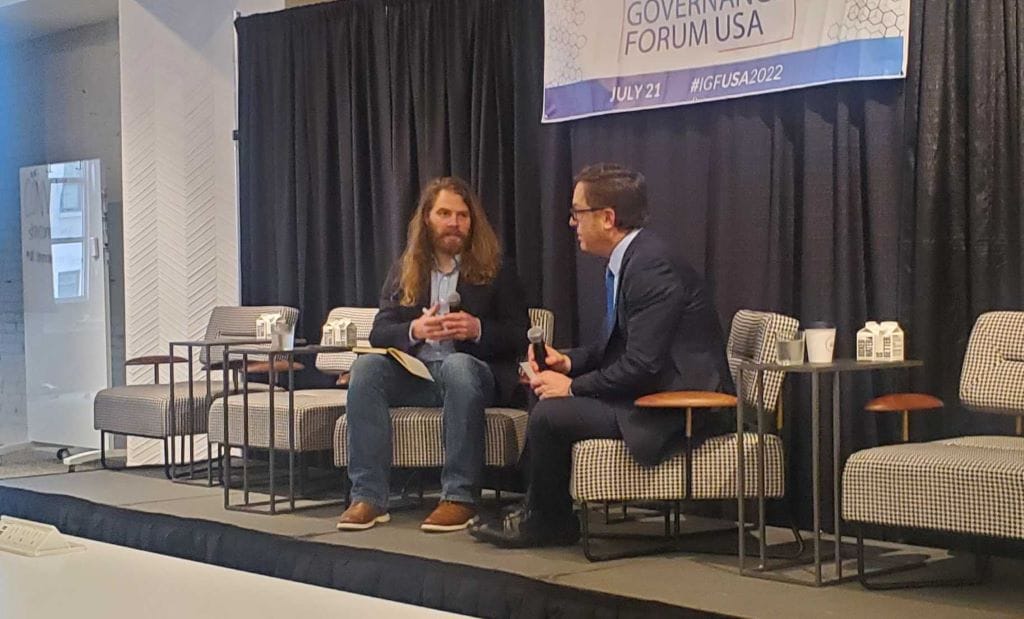NTIA Head Says Agency Supports National Data Privacy Law
‘It is time to act,’ Alan Davidson said at an event Thursday.
Teralyn Whipple

WASHINGTON, July 21, 2022 – National Telecommunications and Information Administration Administrator Alan Davidson advocated for a national data privacy law at an Internet Governance Forum event Thursday.
A comprehensive national privacy law would benefit America, said Davidson, and the country is prepared for it. “It is time to act,” he said.
The comments come a day after the House Energy and Commerce Committee passed six consumer protection bills during a markup session Wednesday, including a long-awaited federal privacy bill. The American Data Privacy and Protection Act addresses a national data privacy framework, a set of consumers’ data privacy rights and enforcement mechanisms.
Davidson spoke against the current fragmentation of data privacy laws across the United States that continues to be a “huge issue” for the NTIA, he said. In particular, the administration is concerned that some citizens in different states have more data privacy protections than those in other states.
At least one member on the committee expressed concern that the federal privacy law would override California’s own comprehensive law.
Open internet key for Davidson
Davidson also said the administration is committed to promoting an “open, secure, reliable, free internet” globally. For that reason, he said the NTIA supports American candidate Doreen Bogdan-Martin for the next secretary general of the United Nations’ technology regulator, the International Telecommunications Union.
The election is key for pushing the United States’ goals of establishing a global open internet approach, he said, as opposed to more closed-internet policies that moderate content at a government level preferred by authoritarian countries.
In June, the NTIA pledged its support of Partner2Connect Digital Coalition, an alliance launched by the ITU to foster meaningful connectivity and digital transformation globally. It seeks to connect the hardest-to-connect communities in least developed countries.








Member discussion